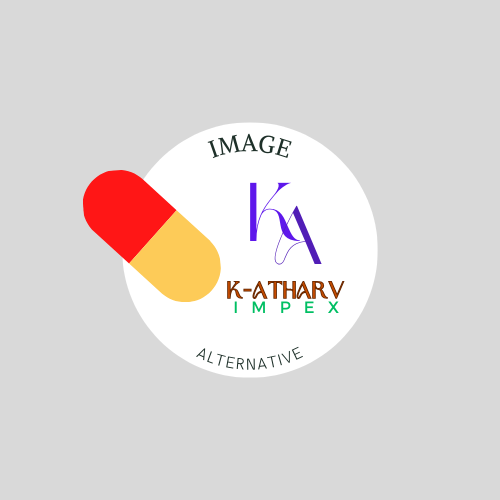- Your cart is empty
- Continue Shopping

FE 10 Injection
Uses of Fe 10 Injection
FE 10 Injection is used in the following:
- Treatment of iron-deficiency anemia
- Treatment of menstrual bleeding
- Correction of nutritional deficiencies
- Supplementation in poor iron absorption
Introduction to Fe 10 Injection
FE 10 Injection contains active components such as iron. It is an essential mineral for the body and is often prescribed as a medication to treat iron deficiency anemia or other conditions where there is a deficiency of this in the body. Pregnant women often require it to support the increased blood volume and the development of the fetus. Its use during pregnancy is commonly recommended to prevent iron deficiency anemia. Some chronic medical conditions, such as chronic kidney disease, inflammatory bowel disease (IBD), or certain types of cancer, can lead to its deficiency. In these cases, it may be part of the treatment plan to address the deficiency. Conditions like celiac disease, Crohn’s disease, or gastric bypass surgery can interfere with the absorption of this medication in the digestive tract. It may be prescribed to compensate for this reduced absorption. Women with heavy menstrual bleeding may lose much of this over time. It can help maintain its adequate levels in such cases.
Individuals who follow strict vegetarian or vegan diets may have a higher risk of its deficiency, as the type of it found in plant-based foods is less readily absorbed than from animal sources. Some endurance athletes, especially female athletes, may experience its deficiency due to increased loss through sweat and gastrointestinal bleeding during intense training. FE 10 Injection may be considered in these cases.
It should be avoided if you have a known allergy to it or any of its components. Individuals with hemochromatosis, a genetic disorder that causes excess absorption and storage in the body, should avoid it. Individuals with hemosiderosis should not take this medication. It is sometimes recommended for infants and young children who are not getting enough of this mineral from breast milk or formula or who have an increased need for it due to rapid growth. It can be used in old age, but it should be used with caution and under the guidance of a healthcare professional.
Therapeutic Effects of Fe 10 Injection
FE 10 Injection supplements primarily work by replenishing the body’s iron stores to combat iron deficiency. When an individual takes an iron supplement, the iron is absorbed in the small intestine and becomes available for various vital functions.
Interaction of Fe 10 Injection with other drugs
Inform the doctor about your medicines, including prescription, over-the-counter, nutritional or vitamin supplements, and herbal products. Certain medications may interact with FE 10 Injection, reducing effectiveness by causing undesirable side effects.
More Information about Fe 10 Injection
- Stored at room temperature from 20°C to 25°C
- Keep away from moisture, heat, and light.
- It should not be frozen.
- Keep away from children and pets.
How to consume Fe 10 Injection
FE 10 Injection can be administered via injection by healthcare providers in a healthcare setting. The dose depends on the severity of the iron deficiency, the underlying condition, and the patient’s ability to tolerate and absorb iron supplements.
Safety Advices for Fe 10 Injection
Pregnancy
FE 10 Injection is often recommended during pregnancy to prevent or treat iron-deficiency anemia. However, it’s important to consult with your healthcare provider for personalized advice on the appropriate dosage and timing.
Breast Feeding
FE 10 Injection supplements are generally safe for breastfeeding mothers, and they can help maintain iron levels. Ensure you follow your healthcare provider’s recommendations regarding dosage and timing.
Lungs
FE 10 Injection supplements are generally unrelated to lung health. However, if you have a specific lung condition or are concerned about any interactions with medications you’re taking for lung issues, discuss them with your healthcare provider.
Liver
If you have liver issues, consult with your healthcare provider before taking FE 10 Injection supplements, as they may need to monitor your liver function and adjust the dosage accordingly.
Alcohol
It’s generally safe to consume moderate amounts of alcohol while taking FE 10 Injection supplements. However, excessive alcohol intake can interfere with iron absorption and may worsen iron deficiency. It is advised to consult a healthcare provider.
Driving
FE 10 Injection supplements are unlikely to impair your ability to drive or operate machinery when taken as directed. However, if you experience side effects like dizziness or nausea, it’s best to avoid driving until you feel well and consult a healthcare provider.
Side Effects of Fe 10 Injection
FE 10 Injection causes side effects like all medications, although not everyone will experience them.
Serious
- Allergic reactions
- Severe nausea or vomiting
- Severe constipation or bowel obstruction
- Iron overload (hemochromatosis)
- Hypotension (low blood pressure)
- Liver or kidney problems
- Systemic reactions
Common
- Gastrointestinal distress
- Dark stools
- Heartburn
- Bad taste
- Stomach cramps
- Constipation

